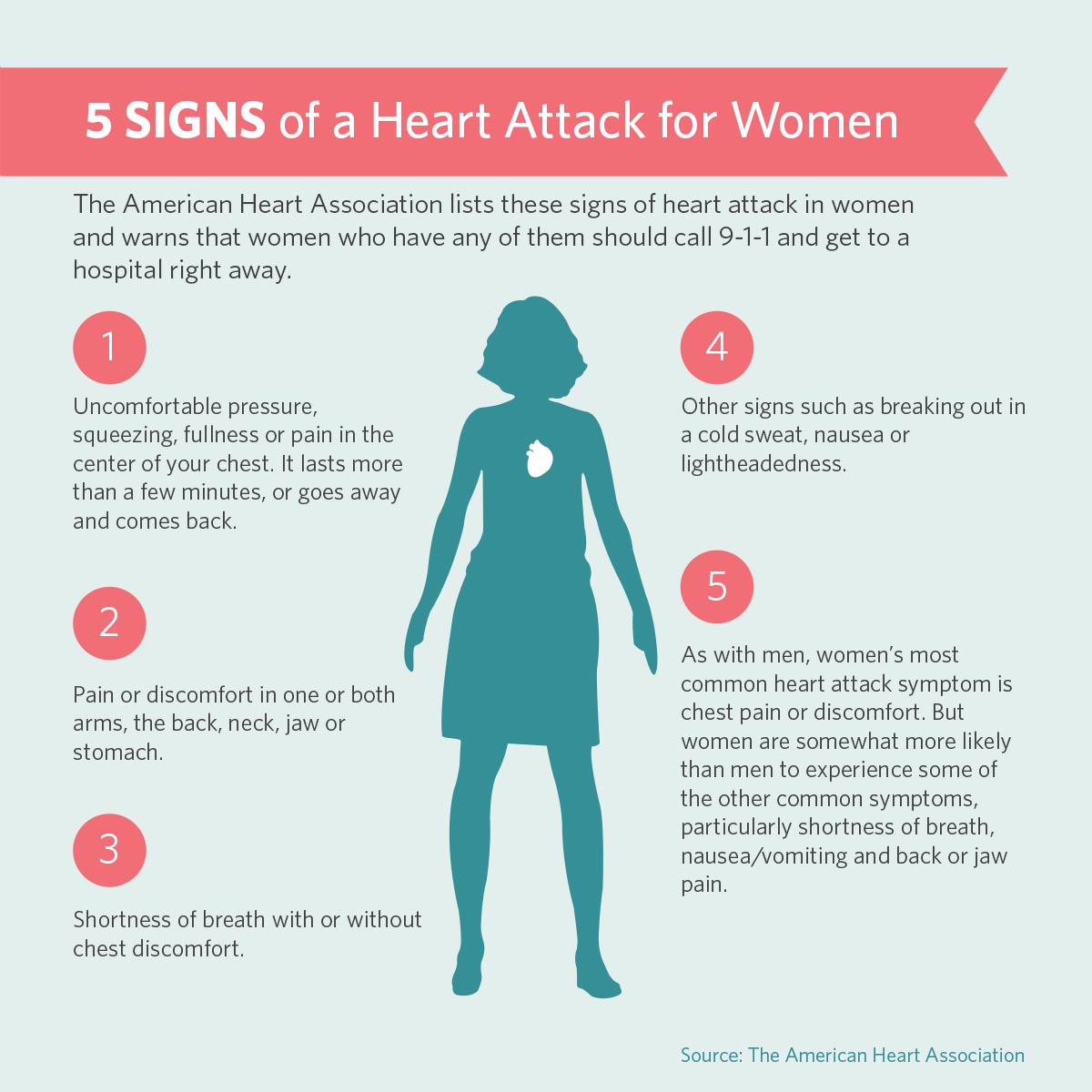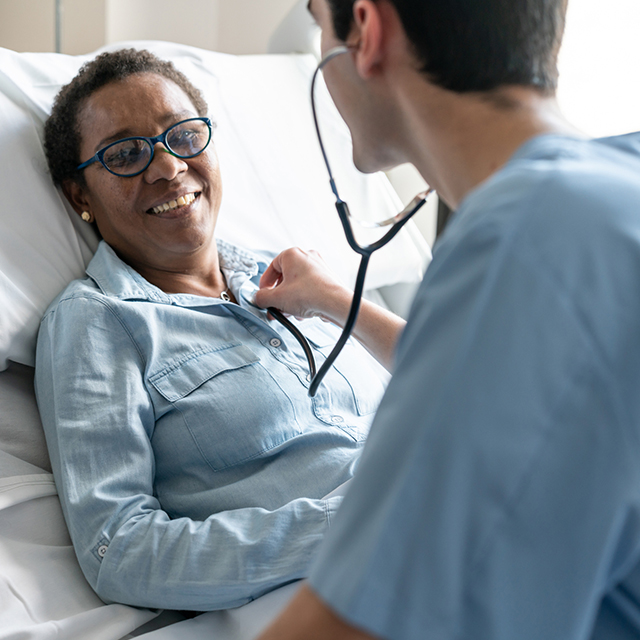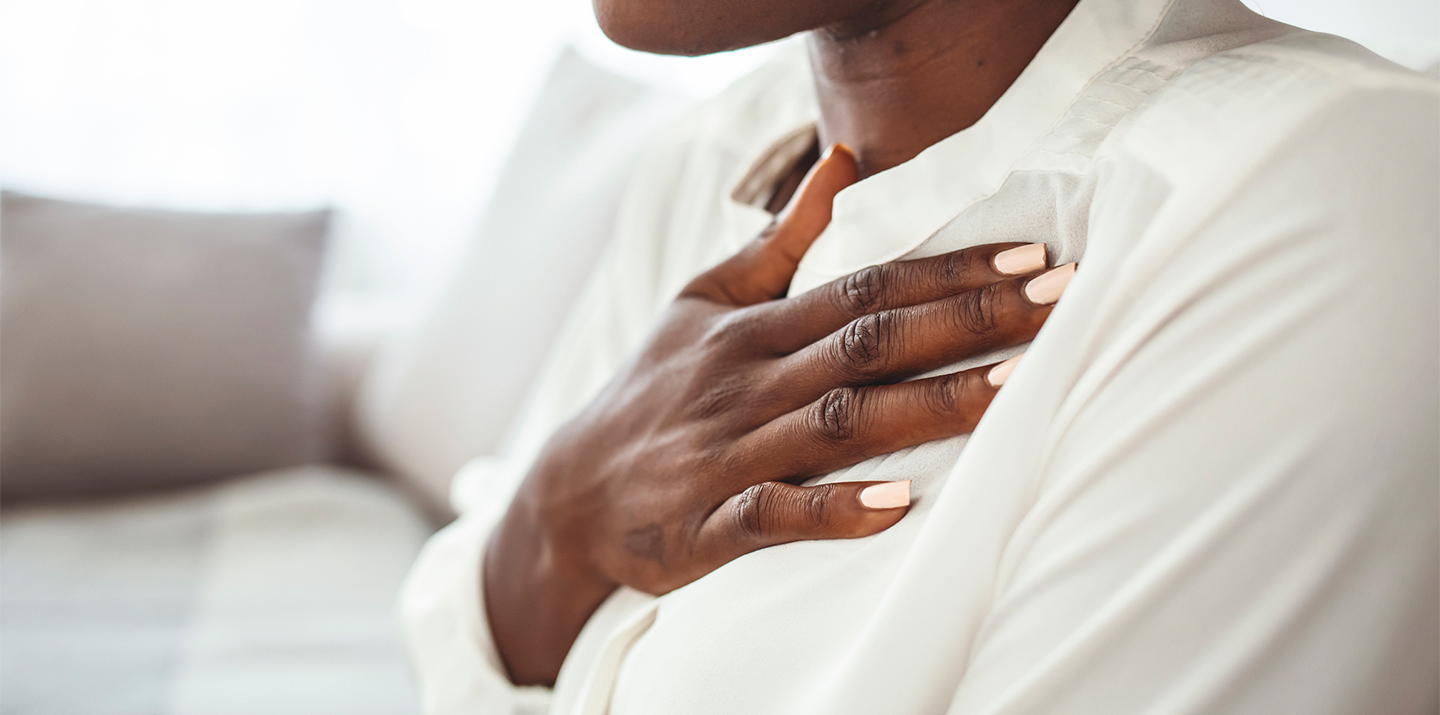It’s crucial to listen to your body and understand how women’s symptoms can be different than men’s.
The first time Jessica Biggs remembers someone talking to her about the symptoms of heart attacks in women, she was 32 — and having one herself.
Four heart attacks and six stents later, she talks to any woman who will listen about the reality of heart attacks for women and how to spot the warning signs. Jessica said it seems that young women are taught about the importance of mammograms and Pap smears, but not as much regarding heart health. Heart disease is the No. 1 killer of women in the United States, yet often the symptoms are chalked up to other conditions, stress, anxiety or aging.
Understanding heart disease
The American Heart Association lists these symptoms of heart attack in women and warns that women who have any of them should call 9-1-1 and get to a hospital right away:
- Uncomfortable pressure, squeezing, fullness or pain in the center of your chest. It lasts more than a few minutes, or goes away and comes back.
- Pain or discomfort in one or both arms, the back, neck, jaw or stomach.
- Shortness of breath with or without chest discomfort.
- Other signs such as breaking out in a cold sweat, nausea or lightheadedness.
- As with men, women’s most common heart attack symptom is chest pain or discomfort. But women are somewhat more likely than men to experience some of the other common symptoms, particularly shortness of breath, nausea/vomiting and back or jaw pain.
Jessica’s first heart attack symptoms continued on and off for three days before she sought medical attention. It began with a sneeze and an odd sensation while she was on a business trip to Dayton, Ohio. She made one stop on her way out of town and then started driving back home when the extreme fatigue became too much. She pulled over at a rest stop to take a nap before making her way back to her home in Smith County, Tennessee.
“I just pushed through it like you would a pulled muscle,” she said. “It’s a wonder I didn’t die in the car that day. It didn’t cross my mind to go to the hospital.”
Symptoms appeared on and off for three days. She drank baking soda and water thinking it was heartburn. Jessica experienced exhaustion and pain like she had never felt. Eventually, she felt like someone was sitting on her chest and pain invaded her back and shoulder blades. She tried yoga to try to stretch it out but still didn’t call a doctor, thinking she would be told to go breathe into a paper bag and go home.
Finally, when pain in her chest began radiating into arm – “I felt like someone was electrocuting me and the muscle was being ripped from the bone in her left arm” — she realized, “That was what dying felt like and I knew it.”
Jessica sought treatment at local emergency room just in time. More heart attacks followed, and finally, she received a diagnosis after being sent to Vanderbilt University Medical Center. Though her condition, spontaneous coronary artery dissection, is a less common cause of heart attacks in women, Jessica still works to educate women on the warning signs.
In general, Jessica wishes more health care professionals wouldn’t automatically rule out heart attacks in women and that the topic would get the attention year-round that it does once a year during February’s American Heart Month.
“I gambled with my life by not being more proactive in my own care. If I had thought for one second that it was possible for a healthy 32-year-old to have a heart attack, I would have gone to the doctor sooner,” Jessica said.
She wants other women to know this – and to teach their daughters: “Don’t play around with your health. Listen to your body. If you’re hurting in your chest, it doesn’t always mean it’s anxiety. If you get to the hospital and they tell you nothing’s wrong, better safe than sorry.”


Vanderbilt Women’s Heart Center
Heart disease is the leading cause of death in women in the U.S., yet it often goes under-diagnosed and under-treated. Vanderbilt Health offers a specialized program tailored to women’s heart health needs, spanning from childbirth to menopause and beyond. Women’s Heart Center experts work together to treat heart disease with the special needs of women in mind.




